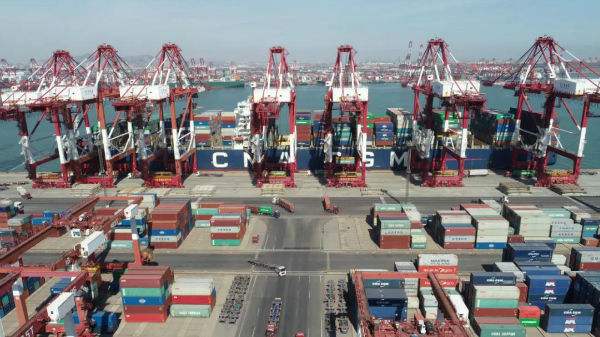According to yonhap news agency, data released by the south Korean government on May 21 showed that south Korean exports fell 20.3% in the first 20 days of may compared with the same period last year as the covid-19 outbreak continued to disrupt global demand.
In the period from May 1 to May 20, south Korean exports were $20.3 billion, down 20.3 percent from a year earlier, customs data showed. Analysts expect South Korea's trade data to bottom out as its trading partners ease lockdown measures on the outbreak.
South Korean exports to the United States and the European Union continued to plunge, falling 27.9 percent and 18.4 percent, respectively, while exports to Japan also fell 22.4 percent, the data showed. Among the major export categories, exports of wireless communication equipment fell 11.2 percent, exports of passenger vehicles fell 58.6 percent and exports of petroleum products fell 68.6 percent, but exports of semiconductors and ships increased.
In April, South Korea's exports were about $36.92 billion, down 24.3 percent from a year earlier. Separately, South Korea's imports in April fell 15.9 percent from a year earlier to $37.87 billion, with a $950 million trade deficit, ending more than eight years of trade surpluses.
South Korea's central bank may cut its benchmark interest rate and GDP growth forecast for 2020 at its policy meeting next week, analysts at societe generale said, foreign media reported. The bank of Korea is expected to cut its policy rate by a further 25 basis points to 0.5 per cent and cut its GDP growth forecast to 0.2 per cent from 2.1 per cent. In addition, the bank of Korea is likely to expand its bond-buying program to support economic growth.
Japan's exports fell by 21.9% in April from a year earlier, the biggest drop since a 23.2% drop after the global financial crisis in 2009, according to trade statistics released by the ministry of finance on May 21st. So far, Japan's exports have fallen for 17 consecutive months from a year earlier.
Japan's exports fell to about 5.2 trillion yen ($48 billion) in April, dragged down by sharp falls in exports of cars, machinery, chemicals and textiles, data showed. Among them, auto exports plunged 50.6 percent, the biggest drop since April 2011. Exports to the U.S. fell 37.8 percent, the biggest drop since 2009. Exports to the European Union fell 28 percent.
Economists at barclays securities said the global recession would lead to "an increase in household savings and a delay in capital spending" that could "hit particularly hard" Japanese industries such as car manufacturing, according to kyodo news. Economists also noted that Japan's exports may have rebounded temporarily in May and June, but if exports continue to fall, the country's trade deficit could widen to around 5 trillion yen by 2020.
The latest economic data showed gross domestic product in the first quarter of this year at an annual rate of minus 3.4 per cent. After a 7.3 per cent decline in the fourth quarter of last year, Japan has recorded two consecutive quarters of negative GDP growth, the first time the economy has fallen into recession since 2015.


